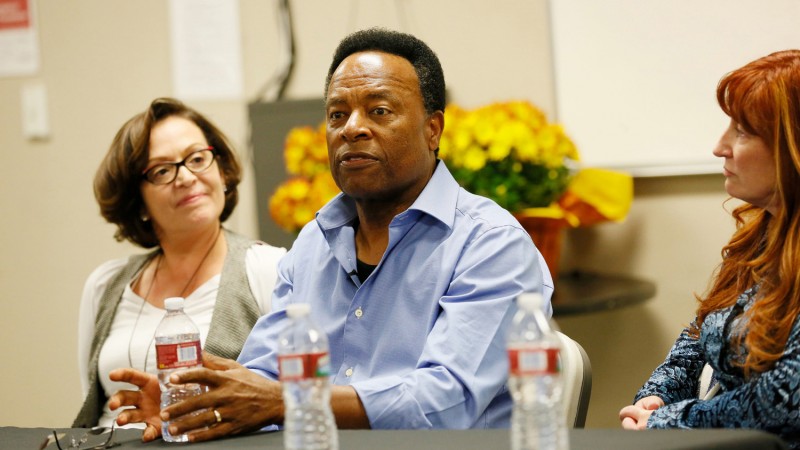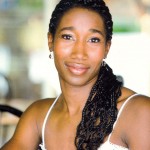
(Photo by Ryan Miller/Capture Imaging)
The USC School of Dramatic Arts organized a four-day-long summit in the fall devoted to dialogue around issues of race, gender, culture and identity — not only in our School, but throughout our field. The Diversity Summit served as an enriching, creative and critical catalyst to spark informed conversations among our faculty, staff and students about these complex issues.
Throughout the summit’s programming, which included breakout sessions, performances, presentations, panels, interactive workshops and a culmination forum, all stakeholders in SDA were encouraged and challenged to be conscious, authentic and active participants with mutual respect and sensitivity to the different perspectives and experiences represented in the room. A “safe and inclusive” space was fostered and sustained by Interim Dean David Bridel, our guest facilitator, noted playwright and diversity and inclusion advocate and consultant Jacqueline E. Lawton, and alumni, artists, professors and scholars.
This “safe and inclusive” space was also cultivated by participants to strategize action steps for our School. Through the important work of the weekend, the School committed itself to the following:
- An undergraduate literary committee comprised of faculty, staff and students (that will work to assist in the play selection for our season of plays);
- an Inclusion and Equity Committee including faculty, staff, students and alumni (dedicated to the continued work the event started);
- strong collaboration with the Provost’s Office and the Office of Student Affairs to use SDA performances and workshops to help address issues of campus climate throughout the University;
- a masterclass led by Tony-nominated actress Michelle Shay, which was held mid-January on the work of August Wilson;
- and ongoing educational workshops and the creation of a database with resources on diversity and inclusion for students, faculty and staff.
As we effectively implement the above‐mentioned initiatives, our School will serve as a model and standard-bearer for theatre training programs nationally and internationally.
When this summit was in its planning stages, few people foresaw the events, protests, rallies, resignations and calls to action about racist and discriminatory practices and pedagogy on innumerable college campuses across the country. The timing of our Diversity Summit was propitious indeed and further affirmed the immediate and urgent need for this type of work and for this type of active engagement and dialogue. As was often stated during the summit, we, as artists, are well suited to heed the call and lead in offering a critical and creative space through the fusion of performance and dramatic and critical literature, to address these issues, not only within our School, but within the larger campus climate of the university.
As alumni, parents, donors and friends of our School, we look to you for assistance, for guidance and support. Together, we, the SDA family, will create a stronger school, a stronger university, and even be instrumental in creating a stronger discipline.

Anita Dashiell-Sparks is an Associate Professor of Theatre Practice at the USC School of Dramatic Arts, who coordinated the Diversity and Inclusion Summit in her capacity as the School’s Diversity Liaison. Dashiell-Sparks is also founder of Building Bridges Community Outreach, has performed on stage from regional theatres to Broadway, and has directed productions throughout the country, such as The Pasadena Playhouse and Black Theatre Festival. This spring, she is directing Kia Corthon’s Breath, Boom for the School of Dramatic Arts.